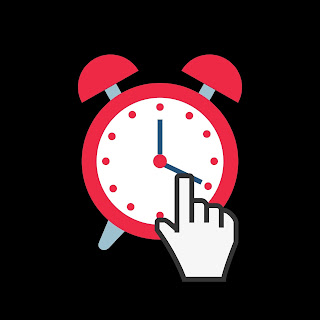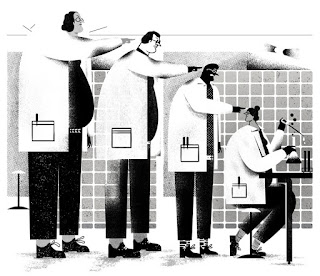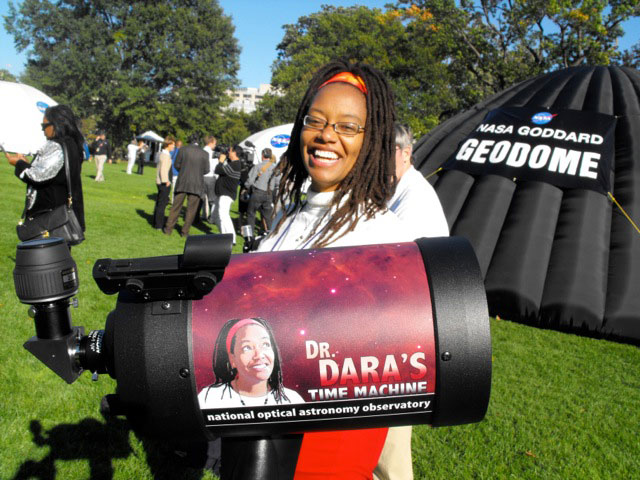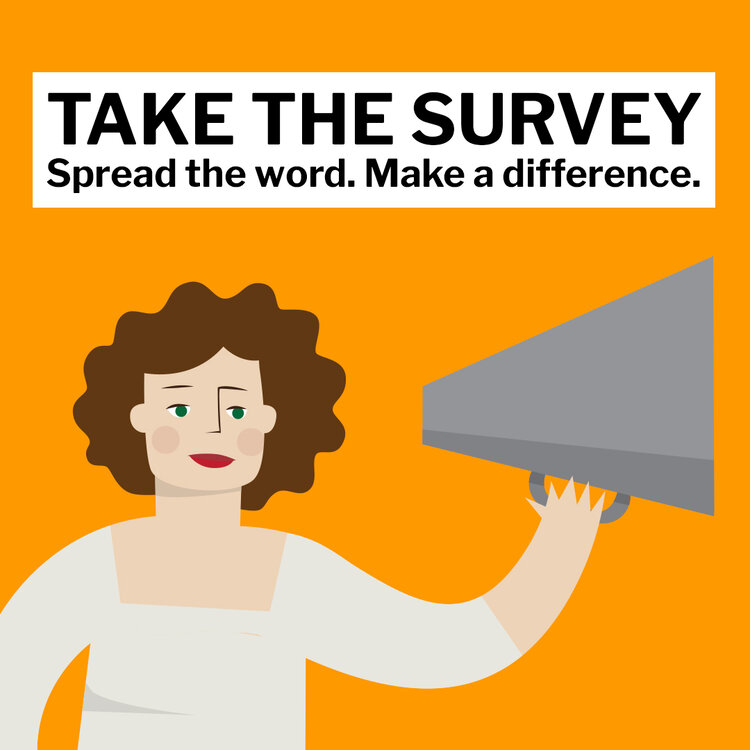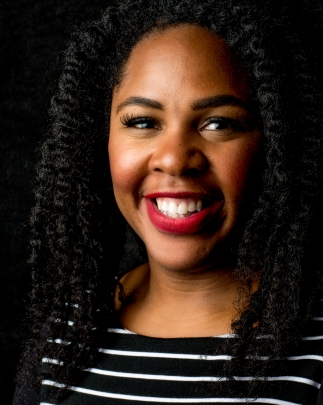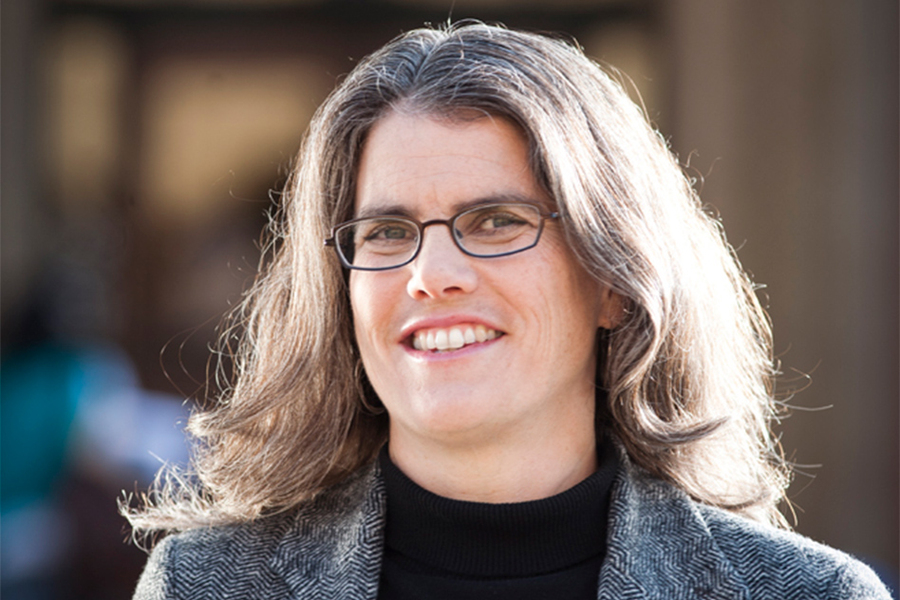AAS Committee on the Status of Women
Issue of October 16, 2020
eds: Heather Flewelling, Nicolle Zellner, Maria Patterson, Jeremy Bailey, and Alessandra Aloisi
[We hope you all are taking care of yourselves and each other. --eds.]
This week's issues:
1. When The Two-Body With Children Problem Turns Into The Divorced-With-Children Many-Body Problem  |
Illustration of Kepler-47, a many-body system.
Credits: NASA/JPL-Caltech/T. Pyle |
2. Final Frontier? The Evolution of Planetary Science Missions
3. Survey on effects of COVID-10 on work-life boundaries for women in STEM
4. 2020 University of Michigan Virtual Graduate Fair
5. Why Is It So Hard to Fire a Tenured Sexual Predator?
6. That advice to women to ‘lean in’, be more confident… it doesn’t help, and data show it
7. Upcoming Planetary Science Research Positions at NASA’s Marshall Space Flight Center
8. Job Opportunities
9. How to Submit to the AASWomen Newsletter
10. How to Subscribe or Unsubscribe to the AASWomen Newsletter
11. Access to Past Issues of the AASWomen Newsletter
-------------------------------------------------------------------------------
1. When The Two-Body With Children Problem Turns Into The Divorced-With-Children Many-Body Problem
From: Jeremy Bailin via womeninastronomy.blogspot.com
Much has been written about navigating the two-body problem in academia. Any field where it is typical to assume that people will be able to move across countries and continents every 2-3 years until their mid-30s is an impediment to long term relationships. …
Sometimes relationships don't work out—so it is also important to talk about that. In particular, what happens when pairs of astronomers have children and are then expected to move for their careers, while no longer being in a relationship with the other parent? I certainly don't have definitive answers to this question, but I do have personal experience which I will share as an example of how it can work.
Read more at
-------------------------------------------------------------------------------
2. Final Frontier? The Evolution of Planetary Science Missions
From: Nicolle Zellner [nzellner_at_albion.edu]
By Katherine Broendel
The latest episode of “Third Pod from the Sun” features an interview with Fran Bagenal, a planetary scientist at the University of Colorado Boulder. Bagenal provides an overarching view of different planetary missions and describes how the research and findings of each have built upon the innovations and discoveries that came before.
In this episode, Bagenal also discusses the importance of education that engages students and the need to support the different pathways people take to pursue science.
Read the transcript and listen to the podcast at
-------------------------------------------------------------------------------
3. Survey on effects of COVID-10 on work-life boundaries for women in STEM
From: Curt Dodds [dodds_at_hawaii.edu]
Dr. Ellen Ernst Kossek, Professor of Management at Purdue University, is reaching out to individual women faculty members across the U.S. to report their work-life experiences to help inform a commissioned report for the National Academies of Sciences Committee, "Investigating the Potential Impact of COVID-19 on the Careers of Women in Academic Science, Engineering, and Medicine", to be published Spring 2021. The report will focus on work-life boundaries, domestic labor, and careers of women faculty affected by COVID-19 – with a special focus on those working in STEMM (Science Technology, Engineering, Mathematics, Medicine). Responses are requested by October 18, 2020. For questions, please contact Dr. Ellen Ernst Kossek at ekossek_at_purdue.edu.
Fill out the survey at
-------------------------------------------------------------------------------
4. 2020 University of Michigan Virtual Graduate Fair
From: Jean McKee [jarbaugh_at_umich.edu]
Rackham Graduate School is hosting its first-ever virtual graduate fair on Monday, October 26, from 3:00 to 5:00 p.m. (EST). Representatives from the Astronomy PhD program will be on hand to answer questions about the program and the graduate school search and application process. If you are in the earlier stages of your undergraduate studies, Rackham staff will be available to talk about summer research opportunities at Michigan and help you explore your academic interests. In partnership with our graduate faculty and programs, Rackham is committed to advancing excellence in graduate education by cultivating a vibrant and diverse student community to impact the public good through the scholarship and discoveries of our students and degree recipients.
Register at
-------------------------------------------------------------------------------
5. Why Is It So Hard to Fire a Tenured Sexual Predator?
From: Jessica Mink [jmink_at_cfa.harvard.edu]
This article from the October 15 issue of "Academe Today" from "The Chronicle of Higher Education" enumerates the obstacles to getting sexual predation out of academia.
[Sign-in is required to read the article. –eds.]
Read more at
-------------------------------------------------------------------------------
6. That advice to women to ‘lean in’, be more confident… it doesn’t help, and data show it
From: Heather Flewelling [flewelling.heather_at_gmail.com]
Labor economist Leonora Risse reports on whether or not the advice to women to “lean in” and show confidence in the workplace really works.
Read more at
Read the journal article at
-------------------------------------------------------------------------------
7. Upcoming Planetary Science Research Positions at NASA’s Marshall Space Flight Center
From: Heidi Haviland [heidi.haviland_at_nasa.gov]
The Heliophysics and Planetary Science Branch at NASA’s Marshall Space Flight Center in Huntsville, Alabama, plans to offer multiple positions seeking scientists to conduct research and develop applications to solve challenging Planetary Science problems. Outstanding candidates have the potential to be selected for federal employment, joining more than 30 other federal employees, academic staff, and contractors supporting Planetary Science efforts within the Branch, a subset of the Science Research and Projects Division, and the Science and Technology Office at Marshall Space Flight Center.
Research Space Scientist positions will be offered for researchers in planetary science, with expertise in remote sensing of planets, moons, and asteroids, and the development of instrumentation for planetary science investigations. The selected candidates will add substantive capability synergistic with the current staff and the goals of NASA’s Artemis program and MSFC's strategy to integrate human space flight and science robotic capabilities in the Artemis era. The candidates will have an opportunity to lead the development of research proposals for new activities, execute funded projects, and share their accomplishments through conference participation and appropriate peer-reviewed literature.
The positions are expected to be announced in autumn 2020 under the category of Research Space Scientist and at the GS-13 grade level. Successful candidates will have had experience applying advanced tools, techniques, and/or data analysis/mining/machine learning techniques to datasets collected with remote sensing measurement techniques. Candidates should have made regular contributions to a research team with some guidance and direction, developed new analysis techniques to solve challenging problems, made contributions to peer-reviewed proposals in response to technical solicitations, and have contributed to peer-reviewed publications as part of a demonstrated publication record.
The formal announcement of the opportunity and related requirements will be posted in the near future at USAJobs (www.usajobs.gov) and can be found by searching with keyword NASA and location of Huntsville, Alabama. Applications are only accepted through the USAJobs portal, and United States citizenship is required to be eligible for these civil service positions. Candidates are encouraged to create a USAJobs profile well in advance to populate their resume and may also subscribe to USAJobs alerts received via email. Informal inquiries can be directed to Dr. David McKenzie, david.e.mckenzie_at_nasa.gov, 256-961-7896.
-------------------------------------------------------------------------------
8. Job Opportunities
For those interested in increasing excellence and diversity in their organizations, a list of resources and advice is here: https://aas.org/comms/cswa/resources/Diversity
- Professor, Astrophysical Sciences AND Head of Theory, Princeton Plasma Physics Lab
- Assistant Professor Of Theoretical Quantum Physics, Cal State University – Long Beach
- Postdoctoral Scholar, The Center for Energy Research (CER), San Diego, CA
- Postdoctoral Position, MAVEN’s Imaging UltraViolet Spectrograph Team, Boulder, CO
-------------------------------------------------------------------------------
9. How to Submit to the AASWOMEN newsletter
To submit an item to the AASWOMEN newsletter, including replies to topics, send email to aaswomen_at_aas.org
All material will be posted unless you tell us otherwise, including your email address.
When submitting a job posting for inclusion in the newsletter, please include a one-line description and a link to the full job posting.
Please remember to replace "_at_" in the e-mail address above.
--------------------------------------------------------------------------------
10. How to Subscribe or Unsubscribe to the AASWOMEN newsletter
Join AAS Women List by email:
Send an email to aaswomen_at_aas.org. A list moderator will add your email to the list. They will reply to your message to confirm that they have added you.
Join AAS Women List through the online portal:
Go to https://lists.aas.org/postorius/lists/aaswlist.lists.aas.org and enter the email address you wish to subscribe in the ‘Your email address’ field. You will receive an email from ‘aaswlist-confirm’ that you must reply to. There may be a delay between entering your email and receiving the confirmation message. Check your Spam or Junk mail folders for the message if you have not received it after 2 hours.
To unsubscribe from AAS Women by email:
Send an email to aaswlist-leave_at_lists.aas.org from the email address you wish to remove from the list. You will receive an email from ‘aaswlist-confirm’ that you must reply to which will complete the unsubscribe.
Leave AAS Women or change your membership settings through the online portal:
Go to https://lists.aas.org/accounts/signup to create an account with the online portal. After confirming your account you can see the lists you are subscribed to and update your settings.
--------------------------------------------------------------------------------
11. Access to Past Issues
Each annual summary includes an index of topics covered.




